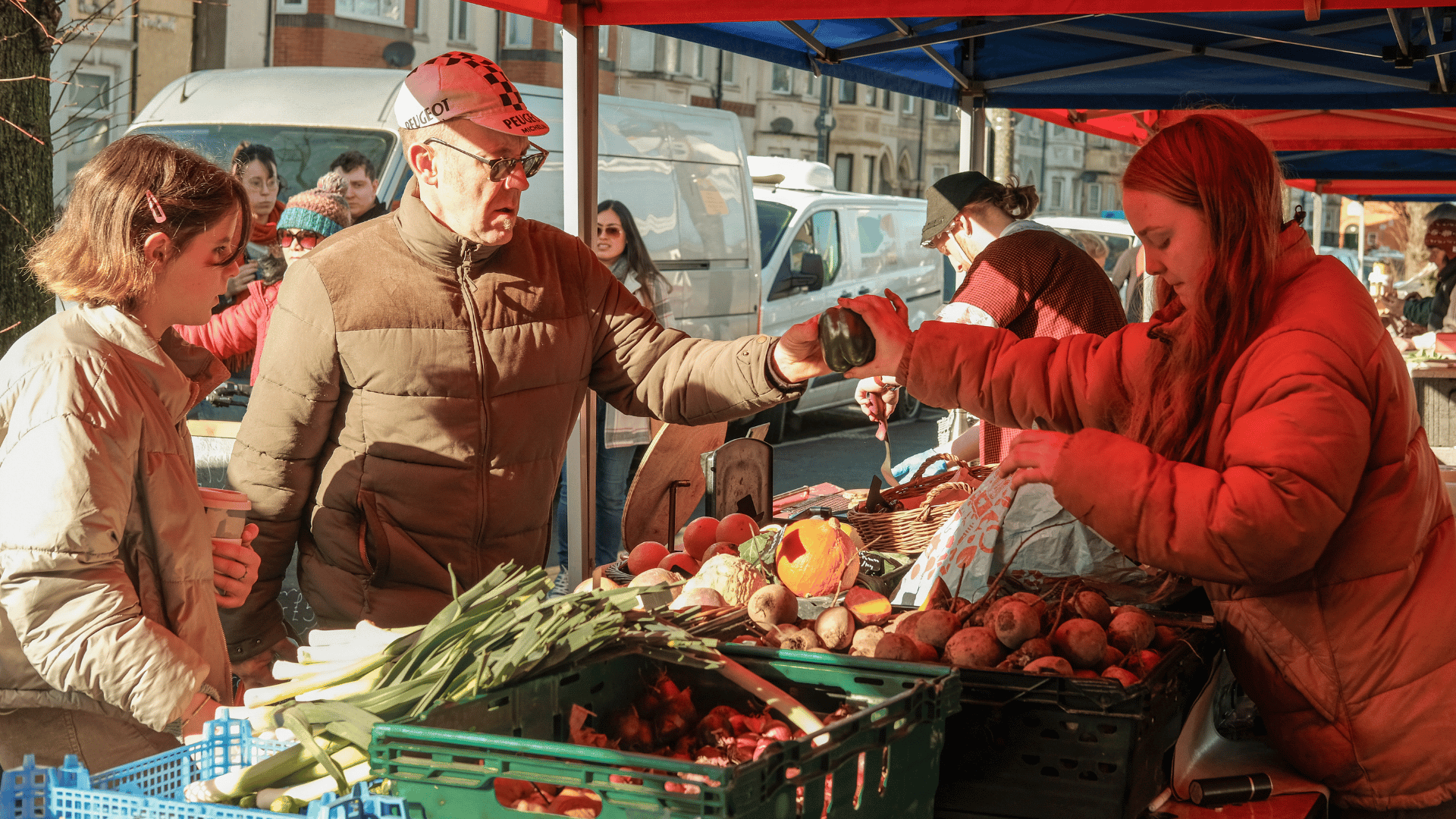Brighton and Hove, Bristol, Cardiff, Glasgow and Middlesbrough are among the only councils using their spending power and land to tackle the climate, nature and health crises through food, a new report has found.
The comprehensive survey of 179 councils across England, Wales and Scotland, run by the Food for the Planet campaign and sustainable food alliance Sustain, found over half (59 per cent) have ‘inadequate’ plans to tackle food emissions. Just under a third (29 per cent) of councils have ‘basic’ plans and just 12 per cent are performing ‘better’.
Councils spend over £69 billion a year and own up to 1.3 million acres of land, so they have an enormous opportunity to reduce emissions from the food system, support farmers, and help people eat healthier and planet-friendly diets. Scored on their climate, nature and food strategies, councils scored on average just one third of available points.
It comes after years of systemic defunding of local authorities, and fresh warnings from councils this week that even “drastic cuts” will not be sufficient to enable their basic responsibilities to be carried out due to rising cost inflation.
Despite this wider context, the report found that overall: “Councils are not utilising their significant power to help tackle our unsustainable and unhealthy food system.”
Food waste was the area for which councils performed best, scoring on average 45 per cent of available points. The report said this may be because there are clear targets (and funding) for local authorities to set up food waste collections, which is not the case other areas like food growing, where councils generally scored worst. Councils also scored poorly on procurement, covering the amount of money they spend on buying food for public sector institutions like schools or hospitals.
“The UK’s target to become carbon neutral by 2050 is written into law. To achieve it, we need to slash emissions from our food system and transition large areas of farmland into nature-friendly production techniques and recover land for nature restoration, which will draw down carbon, build healthy soil, and provide homes for wildlife,” said Ruth Westcott, coordinator for the climate change and nature campaign at Sustain.
“Unfortunately, progress is currently at a snail’s pace. The UK food system has decarbonised at half the pace of the wider economy and agriculture has shown little progress in over a decade.”
The report stressed that some councils deserve recognition as leaders in their field, despite growing pressure on limited resources.
These leaders, which also include Central Bedfordshire, Cheshire West and Chester, Clackmannanshire, Devon, Dorset, Ealing, East Ayrshire, Monmouthshire, Surrey, Telford and Wrekin, Tower Hamlets and the Vale of Glamorgan, were often part of the Sustainable Food Places programme, a nationwide scheme that provides training and support in how to set up a sustainable food network.
An effective national policy was found to make a significant difference, as councils in Scotland (which has a national policy requiring councils to develop a food growing strategy) scored a third higher on the farming theme. Wales is also in the process of establishing a national food plan, while England recently rejected a comprehensive National Food Strategy by Henry Dimbleby.
Westcott added: “National leadership is desperately needed, but the UK government is missing in action and has produced no comprehensive plan to tackle food-related emissions, despite research showing that a plan could improve the mitigation and adaptation contributions from food systems by up to 25 per cent.”
The report is published by Sustain and best practice among leading councils is published as case studies so that their work can be replicated.















Reading this makes me want to cry – because compared to where I am (northern Poland) it sounds brilliant – my reaction is not “only some councils” but “wow, some councils” have a food and farming plan ! Here that sounds like an impossible dream. It is vital for the survival of us all that positive practice spreads across the globe so if any of these councils or towns are twinned with those in other countries they should do all they can to spread the message and show what is essential and possible to achieve.
As they are ‘leading on food’ let’s hope that Bristol council do everything in their power to stop developers building on farmland belonging to or being used by the only working organic farm within the city boundaries – Yew Tree Farm (as featured on BBC Countryfile)